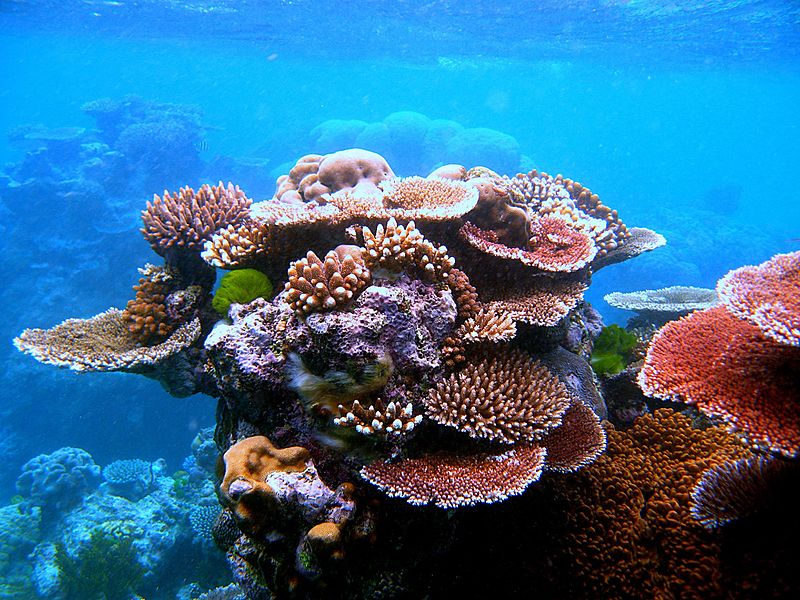News
Scientists are giving up on saving Australia’s great barrier reef

Continued coral bleaching along the almost 134,000-square-mile northeastern Australian reef, the result of rising water temperatures brought about by atmospheric and oceanic warming as a result of global climate change, now appears to be at the point where the coral will not be able to regrow, say scientists. (Photo: Toby Hudson/ Wikipedia)
MOSCOW–Climatologists and scientists studying the increasingly dire coral bleaching event in Australia’s Great Barrier Reef have given up finding ways to express the urgency surrounding the mass die-off, and are now simply throwing up their hands in despair, as those in a position to take action to mitigate the extinction do nothing.
Referring to the health of the Great Barrier Reef as a “disaster,” and stating that its condition is at the “terminal stage,” oceanographers and climatologists studying the results of a new aerial survey have called on ordinary people to join the fight, as lawmakers, financiers and business leaders do nothing while the UNESCO World Heritage site with the greatest biodiversity on Earth is destroyed.
Continued coral bleaching along the almost 134,000-square-mile northeastern Australian reef, the result of rising water temperatures brought about by atmospheric and oceanic warming as a result of global climate change, now appears to be at the point where the coral will not be able to regrow, say scientists.
Aerial surveys completed last week by scientists from the Australian Research Council’s Centre of Excellence for Coral Reef Studies identified the bleaching of over 800 individual sections along the northern two-thirds of Earth’s largest living structure, one of only a handful of lifeforms that are visible from space.
Many of those studying the effects state flatly that they are in despair, as leaders, especially those in Australia, who have the power to limit climate change continue to argue among themselves, according to The Guardian.
Expressing himself unambiguously, Australian water quality expert Jon Brodie stated that the reef is now in its “terminal stage,” according to The Guardian.
“We’ve given up,” Brodie said, speaking of rescue efforts made by the government. “It’s been my life managing water quality, we’ve failed. Even though we’ve spent a lot of money, we’ve had no success.”
“The federal government is doing nothing really, and the current programs, the water quality management, is having very limited success. It’s unsuccessful,” he added.
Jon Day, who served as director of the Great Barrier Reef Marine Park Authority for 16 years, remarked that the government was doing little to nothing to regulate water runoff, overfishing, agricultural pollution and dredge-spoil dumping in support of industrial logistics in coastal waters.
“Every moment we waste, and every dollar we waste,” said Day, “isn’t helping the issue. We’ve been denying it for so long, and now we’re starting to accept it. But we’re spending insufficient amounts addressing the problem.”
Those still seeking to save the reef are facing considerable hurdles, notably in the form of glacial litigation, cultural ennui, and outright denial on the part of government officials in Canberra and Brisbane.





















